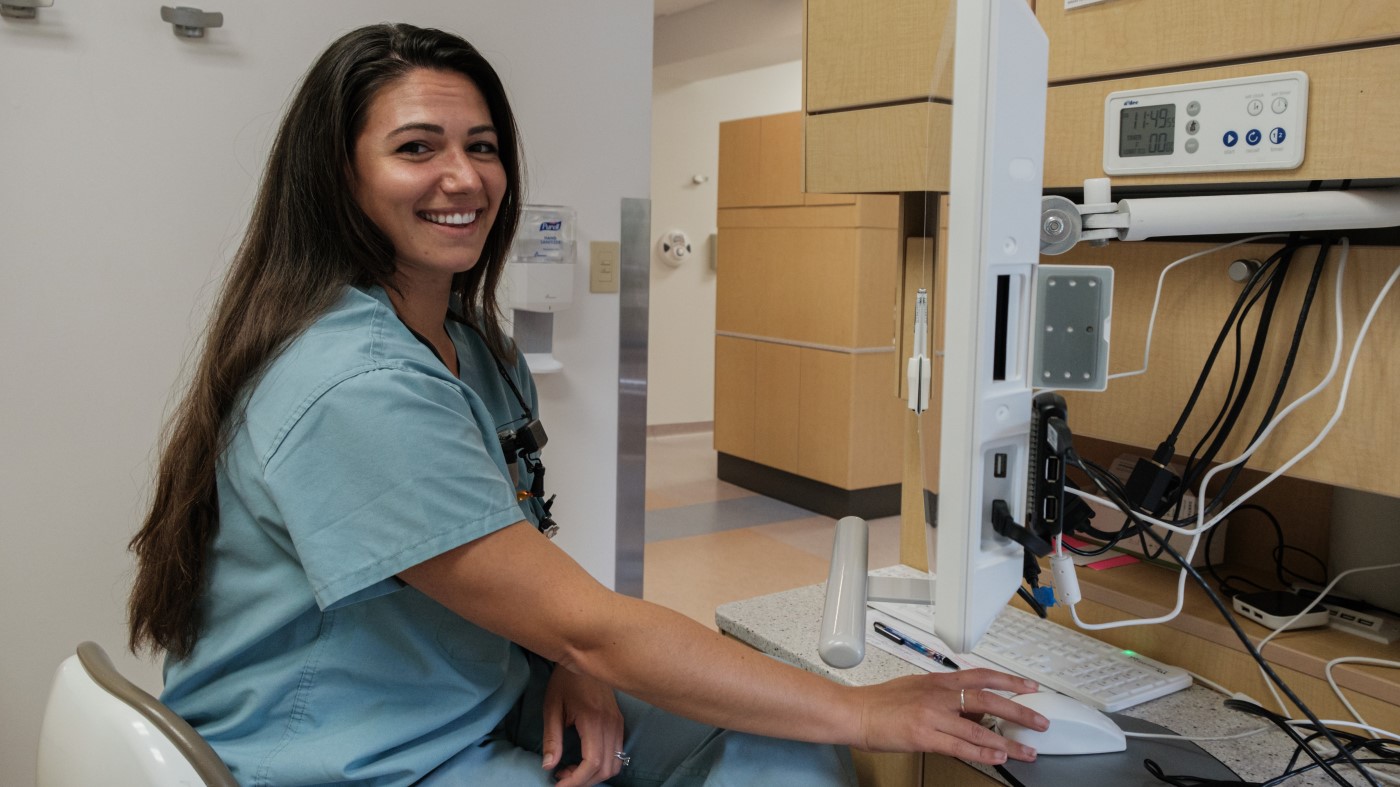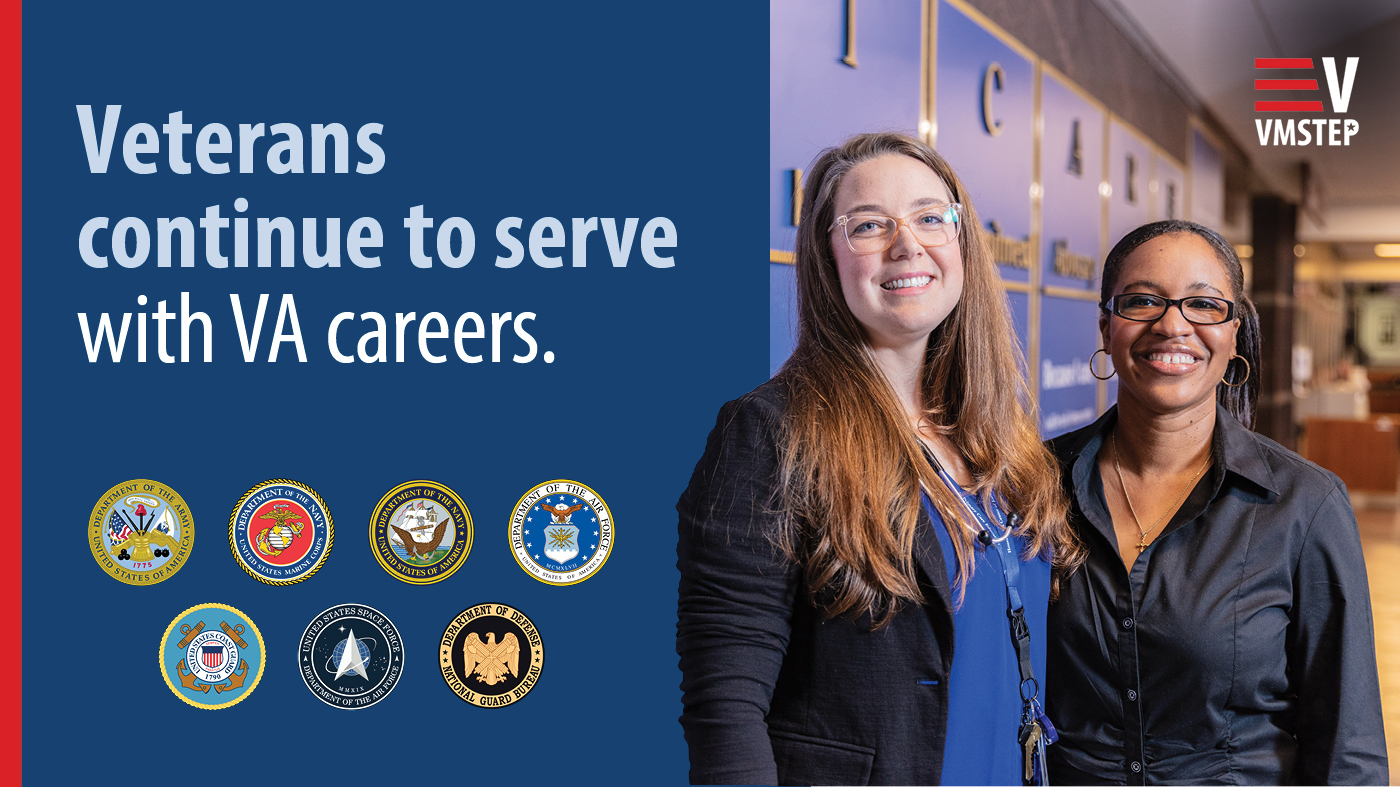Every Tuesday in September, we focused on raising awareness for mental health and suicide prevention in the Veteran community in honor of Suicide Prevention Month. For our final post in this series, we are featuring an article that first appeared in the Winter 2014 issue of VAnguard, a VA publication focused on the contributions of employees. The story follows the work of VA Peer Support Specialists, a vital asset to the patient-centered care team. Read on to learn more.
—
Sarah Oury is a former Army captain who now works as a peer support specialist at the San Diego VA. In her own words, her primary job is to simply share her personal story with her clients. “It can be very therapeutic for them, and for you,” she observed. “Doing this job helps you work on your own self-recovery. Because recovery is never a done deal. It’s always an ongoing process. I’m still mending some of my own relationships.”
There are 11 peer support specialists at San Diego and roughly 800 at VA sites nationwide. They represent VA’s newest and perhaps most promising strategy to get Veterans struggling with mental issues to come in for help.

Peer Support Specialist Sarah Oury (Right) shares a story with Veteran Naomi Winley at the San Diego VA. Photo by Christopher Menzie, San Diego VA
“Peer support specialists are unique, because they’re the only health care providers in VA who are trained to use their own life experiences to help their clients,” explained Dr. Christine Rufener, a staff psychologist who runs the peer support program at San Diego. “As a psychologist, I’m not able to do that because of ethical issues related to doctor-client boundaries.
“Your peer support specialist,” she added, “is someone who’s made it to the other side. They’ve recovered from their own mental health challenges, so they’re in a position to instill hope.”
‘Hope’ is something Phil Clough is just now beginning to get a grip on. The Navy Veteran was the victim of military sexual trauma back in the 1980s, and spent years drinking and drugging to numb the pain.
“When I came to the VA for help, I was shattered,” he said. “I was suicidal. I was homicidal. I had a lot of anger.”
But then a peer support specialist named Eric showed up at his side.
“When I first met Eric, we talked for about an hour,” Clough said. “When I come to the VA now, the first person I ask for is Eric.”
The Navy Veteran said he now has three peer support specialists who are helping him stay on course during his treatment program at the VA.
“They did the one thing that all the king’s horses and all the king’s men couldn’t do. They put me back together. I still have a long way to go. I’m damaged. But if I need them I know they’ll always be there for me.”
And when you’re a peer support specialist, ‘being there’ sometimes involves more than just showing up for work at the office.
“In some cases I’ll actually go out to the Veteran’s house,” said Oury. “Sometimes, when you’re that depressed, you can’t even get out of bed. So you certainly can’t get yourself in to the VA. Someone needs to come to you. If that’s what it takes, that’s what I’ll do.”
Rufener said this kind of dedication, however, can be a double-edged sword. “These are highly motivated people,” she observed. “They got the help they needed from VA, and now they’re very motivated to help other Veterans. But this is not easy work. It can be stressful, which is why we continue to support them.” (Source, Written by Tom Cramer)
—
If you are a mental health professional interested in serving Veterans, visit VAcareers.va.gov to learn more about mental health careers, view openings in your area, or talk directly to a recruiter.
Topics in this story
More Stories
You had questions, we had answers. Take a look at the information and advice we shared that had the most impact with readers in 2024.
For Veterans, the mission does not end when the uniform comes off. VA careers offer opportunities to serve while building fulfilling civilian careers.
Whether it’s access to the great outdoors or a calmer pace in your everyday life, you can find it in rural VA communities around the country.






